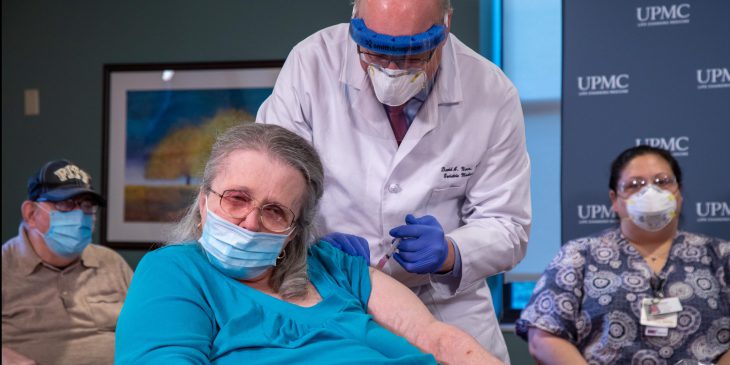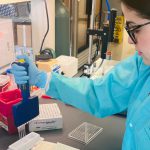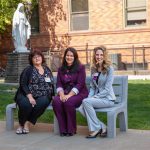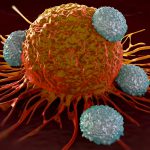At a press briefing today, UPMC and University of Pittsburgh clinician-scientists shared new data on how certain UPMC patients with weak immune systems responded to COVID-19 vaccination and clinical recommendations in response to those findings.
Senior Community Residents Generate COVID-19 Antibodies
Using blood samples collected a few weeks after their second vaccine dose, a study of 70 healthy UPMC Senior Community residents found that all of them mounted varying, but still detectible, antibody responses after COVID-19 vaccination.
“We know that older adults typically have a less robust immune response to other vaccines, including the seasonal influenza vaccine, which tends to decrease in effectiveness over the course of several months,” said Dr. David Nace, chief medical officer of UPMC Senior Communities and associate professor in Pitt’s Division of Geriatric Medicine. “It is important to continue monitoring for COVID-19 symptoms, particularly among people who live in long-term care facilities, whether they are vaccinated or not.”
Visit the UPMC Digital Newsroom to learn more.
More than Half of Cancer Patients Developed Antibody Response to COVID-19 Vaccination
In a similar study of 67 patients with cancers affecting the blood, bone marrow or lymph nodes, 54% produced detectible antibodies against the virus. A subset of the patients studied, those with chronic lymphocytic leukemia, had a less robust response with 77% not producing antibodies.
“Our findings about this group of patients aren’t necessarily surprising, particularly since we know their immune systems are compromised. It does, however, remind us that vigilance and caution are necessary,” said Dr. Ghady Haidar, UPMC transplant infectious diseases physician and assistant professor at Pitt’s School of Medicine. “All should get vaccinated and continue wearing masks and practicing social distancing, even after vaccination, especially those with these cancers. Those around them should do the same.”









